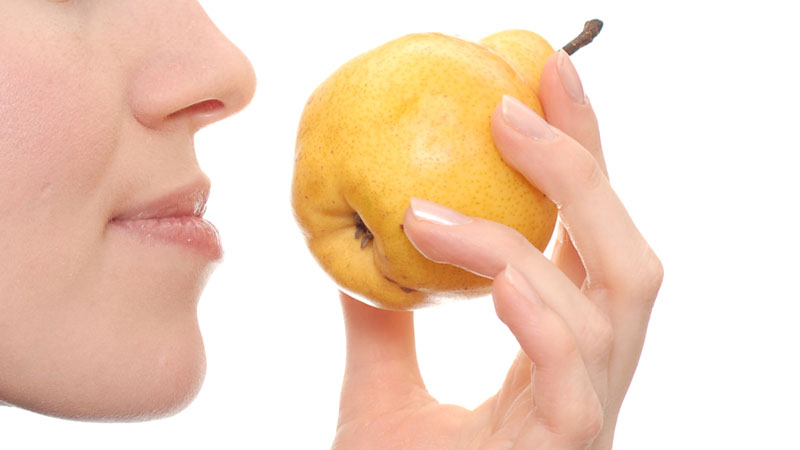Homeopathic treatment for impaired taste and smell
According to my experience, along with treatment for impaired taste and smell t’s important to treat the underlying condition – the root cause that is causing impaired taste, which may require certain  Homeopathic medications along with lifestyle changes. A Homeopathic doctor can help identify the cause of impaired taste and determine the best course of treatment based on individual needs. here are some good Homeopathic medicines/remedies in my experience:
Homeopathic medications along with lifestyle changes. A Homeopathic doctor can help identify the cause of impaired taste and determine the best course of treatment based on individual needs. here are some good Homeopathic medicines/remedies in my experience:
Tabacum
The symptoms of Tabacum are nausea, giddiness, death-like pallor, vomiting, icy coldness, and sweat, with the intermittent pulse. Complete prostration of the entire muscular system. Collapse. Gastralgia, enteralgia, seasickness, cholera; cold but wants abdomen uncovered. Vigorous peristaltic activity diarrhea. Constriction of throat, chest, bladder, rectum. Pallor, breathlessness, hard-cordlike pulse.
Sensation of excessive wretchedness. Very despondent. Forgetful. Discontented. Vertigo on opening eyes; sick headache, with deathly nausea; periodical. Tight feeling as from a band. Sudden pain. Nervous deafness. Secretion from eyes, nose and mouth increased. Nasopharyngitis and tracheitis, hemming. Diminished power of smell. Frequent sneezing. Dryness and obstruction of nose. Tongue feels swollen. Swelling of glands under tongue.
Has marked antiseptic qualities, antidotal to cholera germs. Produces high tension and arteriosclerosis of the coronary arteries, that’s why it is one of the most useful homeopathic drugs for angina pectoris, with coronitis and high tension.
Lobelia inflata
Languor, relaxation of muscles, nausea, vomiting and dyspepsia are the general indications that point to the use of this remedy, in asthma and gastric affections. Profuse flow of saliva; acrid burning mouth taste; mercurial taste; tenacious mucus, tongue coated white.
Plantago Major
Tobacco habit. Spleen infections, spleen inflammations. Frequent sneezing, with sudden attacks of profuse, watery, bland coryza, loss of smell. Sudden yellowish nasal discharges. Gums bleed easily. Gumboils. Tongue coated white, with dirty, putrid, clammy taste. Altered taste – food tasteless. Breath putrid. Aphthae/mouth ulcers. Dry, parched throat. Scraping in throat. Soreness and swelling of submaxillary glands on both sides.
Kalmia Latifolia
Coryza; with increased sense of smell; with sneezing, dullness, headache, and hoarseness. Tearing in root of nose and nasal bones, with nausea. Locomotor ataxia.
Bitter mouth taste with nausea. Tongue white, dry, sore. Stitches in tongue. Tingling in salivary glands, immediately after eating, with sense of fermentation in esophagus and copious salivation. Sublingual salivary gland inflamed. Throat swollen, sensation of dryness in throat, difficult swallowing. 
Chamomilla
Dryness of the tongue and mouth or flow of frothy saliva. Putrid smell of the mouth. Tongue red and cracked or loaded with thick and yellowish coating. Blisters on the tongue and also under it, with shooting pains. Aphthae in the mouth. Convulsive movements of the tongue.
Sore throat, with swelling of the parotids, of the tonsils, and of the sub-maxillary glands. Inflammation of the soft palate and tonsils. Putrid or clammy mouth taste. Acid taste in the mouth, and of ryebread. Bitter taste in the mouth and of food. Excessive thirst for cold drinks.
Pulsatilla Pratensis
Pressure and pain as from an abscess in root of nose (near inner canthus, as if a lachrymal fistula would form). The nose feels sore internally and externally. Ulceration of nostrils and of the alae nasi. Coryza with loss of taste and smell, or with discharge of thick (yellowish green) and fetid mucus. Tickling in nose and frequent sneezing. Imaginary smells. Constant smell before nose, as from a coryza of long standing, or as of a mixture of coffee and tobacco. Swelling of nose. Nasal bones pain.
Nicotinum
feels as if air had odor of alcohol. Face pale, features drawn. Sensation of an aura in upper jaw. Sharp burning sensation in tongue. Increased saliva. Scraping, burning taste. Throat dryness; and scraping in throat. Sensation as though a sharp brush drawn through esophagus to stomach. Sensation of dysphagia.
Coffea Cruda
Stimulates the functional activity of all organs, increasing the nervous and vascular activity. Stimulates the respiratory center, nerve centers and increases diuresis. One of the best stimulants of the Vaso-motor centers. Great nervous agitation and restlessness. Extreme sensitiveness characterizes this remedy. Tight pain, worse from noise, smell, narcotics. Sensitive hearing. Hasty eating and drinking. Delicate taste.
Neuralgia in various parts; always with great nervous excitability and intolerance of pain, driving to despair. Unusual activity of mind and body. Bad effects of sudden emotions, surprises, joy, etc. Nervous palpitation. Coffea is especially suited to tall, lean, stooping persons with dark complexions, temperament choleric and sanguine. Skin hypersensitive. Disabilities, loss of smell, loss of taste etc. Gaiety, easy comprehension, irritability, excited; senses acute. Impressionable.
Arsenicum Album
Thin, watery, excoriating discharge. Nose feels stopped up. Sneezing without relief. Hay-fever and coryza. Burning and bleeding. Acne of nose. Lupus. Tearing needle-like facial pains; burning. Lips black, livid. Angry, circumscribed flush of cheeks. Unhealthy, easily-bleeding gums. Ulceration of mouth with dryness and burning heat. Tongue dry, clean, and red; stitching and burning pain in tongue, ulcerated with blue color. Bloody saliva. Metallic taste. 
Phosphorus
Fan-like motion of nostrils. Bleeding; epistaxis instead of menses. Over-sensitive smell. Periostitis of nasal bones. Foul imaginary odors. Chronic catarrh, with small hemorrhages. Polypi; bleeding easily. Loss of smell. Tearing pain in facial bones. Mouth swelled and easily bleeding gums, ulcerated. Tongue dry, smooth, red or white, not thickly coated. Persistent bleeding after tooth extraction. Nursing sore mouth. Burning in esophagus. Dryness in pharynx and faces.
Carbolicum Acidum
Acts primarily on the central nervous system. Increased olfactory sensibility. Carbolic Acid is a powerful irritant and anesthetic. A languid, foul, painless, destructive remedy. Stupor, paralysis of sensation and motion, feeble pulse and depressed breathing. acuteness of smell. Putrid nasal discharge. Ozaena, with fetor and ulceration. Influenza and resulting debility.
Calcarea Carbonica
Dry, nostrils, sore, ulcerated. Stoppage of nose, also with fetid, yellow discharge. Offensive odor in nose. Polypi; swelling at root of nose. Epistaxis. Coryza. Takes cold at every change of weather. Loss of smell. Persistent sour taste. Dryness of tongue at night. Bleeding of gums. Offensive smell from mouth. Burning pain at tip of tongue; loss of taste.
China officianalis
Checked catarrh. Easily bleeding from nose, especially on rising. Coryza, sneezing, watery discharge. Violent dry sneezing. Cold sweat about nose. Loss of smell. Tongue coated thick, dirty; tip burns, succeeded by ptyalism. Bitter mouth taste. Food tastes too salty.
Antimonium Sulphuratum Auratum
Increased secretion in nose and throat. Rough and scrapy feeling. Loss of smell. Metallic styptic taste. Tickling in larynx.
Sepia Officianalis
Thick, greenish discharge; thick plugs and crusts, yellowish saddle across nose. Chronic nasal catarrh, especially post-nasal, dropping of heavy, lumpy discharges; must be hawked through the mouth. loss of smell. Tongue white. Taste salty, putrid. Tongue foul but clears during menses. Swelling and cracking of lower lip.
Lycopodium Clavatum
Sense of smell very acute. Feeling of dryness posteriorly. Scanty excoriating, discharge anteriorly. Ulcerated nostrils. Crusts and elastic plugs. Loss of smell. Dryness of mouth and tongue, without thirst. Tongue dry, black, cracked, swollen; oscillates to and fro. Mouth waters. Loss of tase. Blisters on tongue. Bad odor from mouth. 
Sulpher
Herpes across the nose. Nose stuffed indoors. Imaginary foul smells. loss of smell. Alae red and scabby. Chronic dry catarrh; dry scabs and readily bleeding. Polypus and adenoids. Bitter mouth taste in morning. Jerks through teeth. Swelling of gums; throbbing pain. Tongue white, with red tip and borders.
Ignatia Amara
Sour taste. Easily bites inside of cheeks. Constantly full of saliva. Toothache; worse after drinking coffee and smoking.
Zincum Metallicum
Teeth loose. Gums bleed. Gnashing of teeth. Loss of smell. Bloody mouth taste. Blisters on tongue. Difficult dentition; child weak; cold and restless feet.


